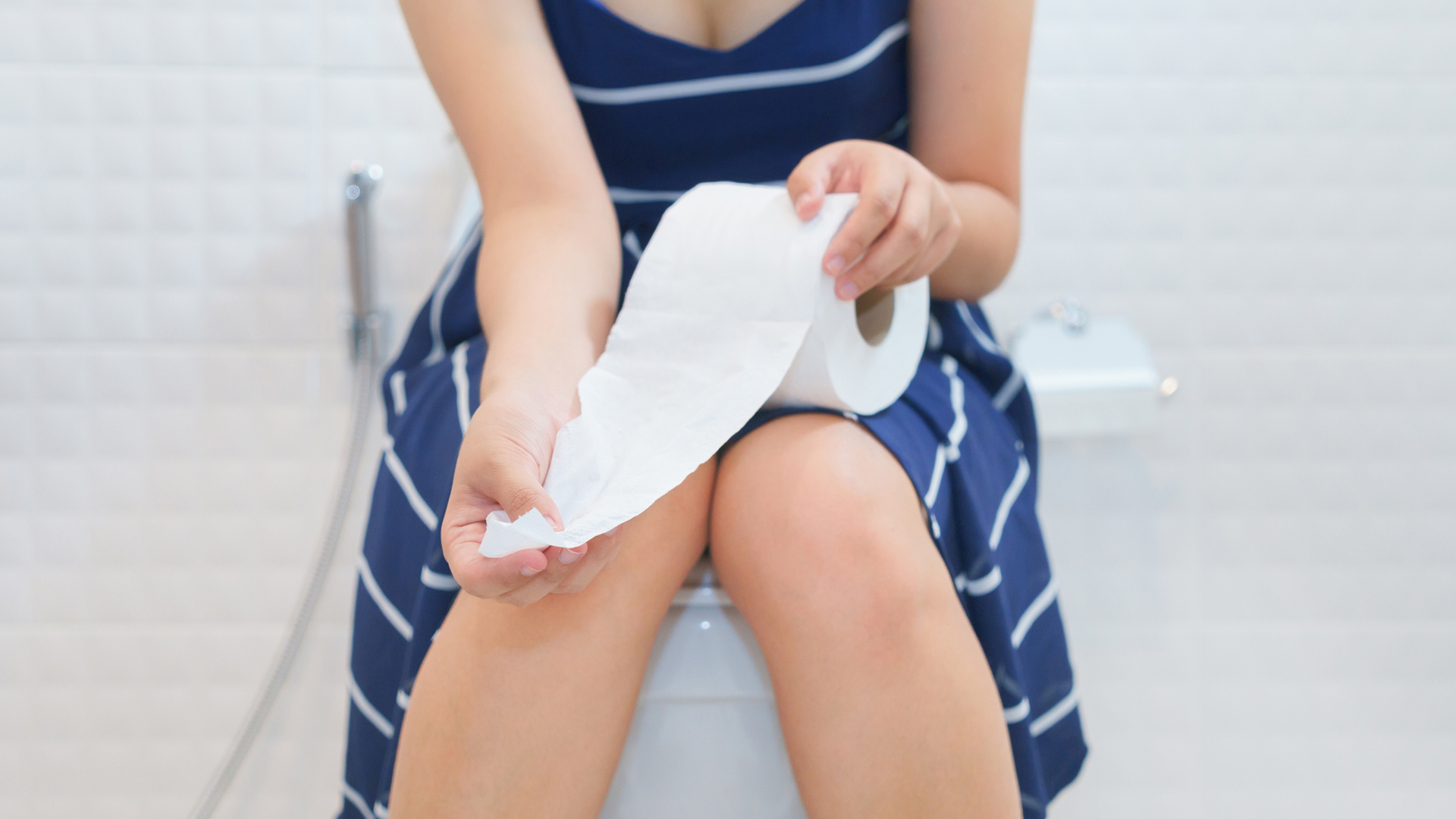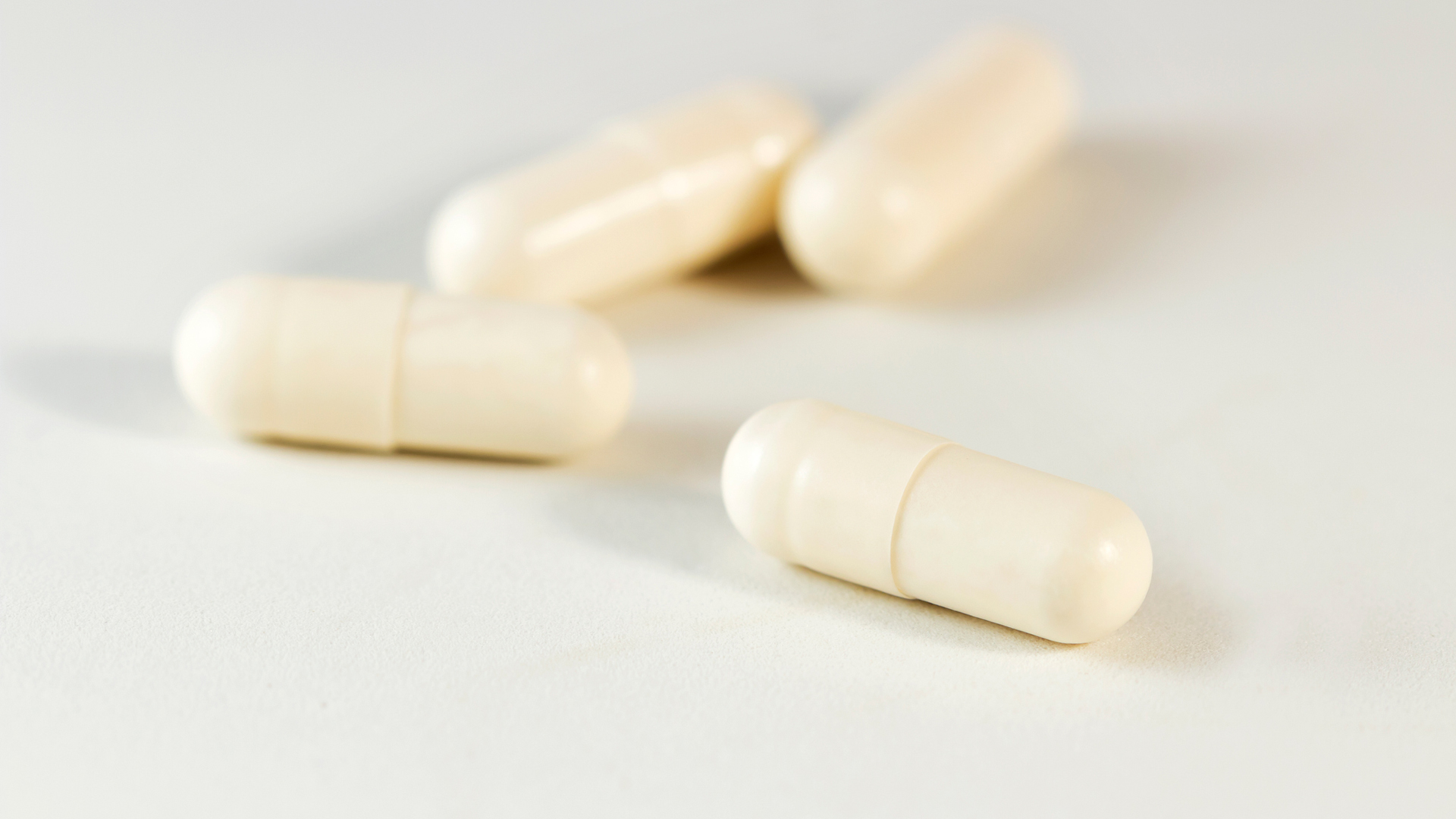Probiotics for vaginal health: Benefits, safety and risks
Is it safe to use probiotics for vaginal health? Our experts weigh in on the potential benefits and risks

You might have heard of the gut microbiome, but did you know that women also have a vaginal microbiome? In fact, taking probiotics for vaginal health might help to keep conditions such as bacterial vaginosis (BV), thrush or even urinary tract infections (UTIs) at bay.
It is worth noting that the vagina is a self-cleaning organ and you don’t need to use scented products or soaps to keep it clean, as these interrupt the vaginal microbiome and may damage it, giving infection an opportunity to get in. Allow your vagina to do what it does best and consult your doctor if you think you may have an infection. While probiotics can be useful to support general health, they will not cure you and you will most likely need medical intervention if you have developed a vaginal infection.
This being said, we’ve asked the experts how probiotics may support vaginal health. Our guide on probiotics for women also has extra information about how these ‘good’ bacteria can influence our health.
Interested in trying probiotic supplements, but not sure which product may be right for you? Our buying guide on best probiotics can help you choose the most appropriate product for your needs.
What is the vaginal microbiome?
The vaginal microbiome is the collection of microorganisms that live in the vagina and keep the environment of the vagina acidic. When infections like thrush, UTIs or BV are contracted, these can knock these populations out of whack and change the pH of the vagina, making it more susceptible to further infection. This is because a less acidic environment gives bad bacteria an opportunity to grow.
“The vaginal microbiome is distinct from other parts of the human microbiome, such as the gut microbiome,” explains Dr Nitu Bajekal, a gynecologist and women’s health expert. “The unique condition of the vagina ensures it is colonized by a few microbial species, usually lactobacilli and some others. “These species can use glycogen, which in turn is under the control of oestrogens, producing lactic acid, and they are responsible for acidifying the vaginal milieu, helping it withstand vaginal infections.

Dr Nitu Bajekal is a consultant obstetrician and gynaecologist. Over the last 30 years of clinical practice, Dr Bajekal has developed special expertise in many areas, including endometriosis, PCOS and the menopause. She is skilled in advanced minimal access surgery, is trained in robotic surgery, vulval disease and cervical cancer screening.
“However, the composition of the vaginal microbes is only part of the story in maintaining a healthy vaginal environment and is dependent on other factors, such as age and physiological status of the vagina.” Genetics and ethnicity may also play a role.
“The vagina doesn’t need specific vitamins or supplements,” adds Bajekal. “It’s a part of the body that benefits best when harsh chemical-laden vaginal washes, soaps, perfumed toiletries and vaginal inserts of yogurt or garlic and supplements, even if advertised as natural, are avoided. Instead, eating a diverse and varied plant-based diet can really help the healthy vaginal microbiome flourish. Focus on adding more fruit, vegetables, beans, soya, herbs and spices, garlic, nuts and seeds, fermented foods and intact whole grains into your daily diet.”
Unprotected sex is another factor that can leave you open to infection, particularly if you don’t know your partner’s sexually transmitted infection (STI) status. It is advisable to urinate after sex to flush any misplaced bacteria from the urinary tract and lower your risk of developing a UTI. Even if your partner is STI-free, you may find that sexual activity spreads bacteria from around the anus to the vulva, so it’s important to ensure both you and your partner maintain good genital hygiene to avoid causing infection. Condoms and/or a dental dam are always a good idea.
Dr Deborah Lee, a sexual health specialist, says that several common vaginal infections are interrelated. “The vagina of a healthy female of reproductive age, contains a predominance of bacteria called lactobacilli, which as their name suggests, produce lactic acid, as well as hydrogen peroxide, and other antimicrobial peptides that kill other bacteria. The presence of these lactobacilli is crucial for keeping the growth of other organisms under control. Because of the lactic acid, the pH of the vagina is acidic, with a pH of 4.5 or below. There are three common gynecological conditions that are directly affected by the vaginal microbiome and they are all interrelated.”

Having worked for many years in the NHS, initially as a GP, and then as Lead Clinician for an integrated Community Sexual Health Service, Dr Deborah Lee now works as a health and medical writer, with an emphasis on women’s health. She is a menopause specialist.
The main three infections that can cause bacterial overgrowth or upset the vaginal microbiome are:
- Bacterial vaginosis (BV)
- Fungal infections, such as vulvovaginal candidiasis (thrush)
- Urinary tract infections (UTIs)
Can probiotics support vaginal health?
An article in the International Journal of Reproduction, Contraception, Obstetrics and Gynecology indicates that low concentrations of vaginal lactobacilli colonization is associated with poor urogenital health and adverse pregnancy outcomes. As such, keeping these lactobacilli populations healthy can support a healthy vagina.
“The few studies that exist on the use of probiotics to treat recurrent candidiasis have had poor results and, so far, this has not been proven to help,” says Dr Lee. “The news is more encouraging for probiotics as a preventative treatment for BV. A 2014 meta-analysis in the Journal of Lower Gastrointestinal Tract Disease concluded that taking probiotics – lactobacillus acidophilus, lactobacillus rhamnosus GR-1, and lactobacillus fermentum RC-14, at least 10 CFU/day for two months – was associated with notable improvements in symptoms.”
What are the best probiotics for vaginal health?
Bajekal encourages avoiding suppositories that claim to help vaginal health as they may be harmful to the vaginal microbiome. “Most over-the-counter supplements and probiotics are unproven for improving vaginal health and should be discouraged. Scientific studies and research in general show no benefit and those studies that show some benefit are weak in strength,” she says.
“Many of these supplements cause harm either by interacting with drugs a person may be on for other medical conditions or may have long-term harmful effects on the body: for example, by disturbing reproductive hormonal health or by displacing the growth of healthy vaginal bacteria in the case of probiotics.”
She says that if you are going to take probiotics, which are basically colonies of bacteria, they should be under the supervision of a specialist in specific instances, such as when one is on a course of prolonged antibiotics or suffers from recurrent infections (thrush, BV).”

An article in the Frontiers in Cellular and Infection Microbiology indicates that BV in particular is often a result of a die-off of lactobacilli in the vagina and a corresponding increase in the concentration of anaerobic microbes. As such, an oral probiotic rich in a variety of lactobacilli bacteria may help support a healthy vaginal microbiome, as well as supporting general immune health and happy gut flora.
Lee encourages a diet rich in probiotics and prebiotics to support vaginal health and a diverse microbiome. “Natural yogurt made from live cultures is full of different strains of lactobacilli,” she says. Studies have shown that women who ate yogurt made from live cultures have more lactobacilli in their vaginas than those who don’t eat yogurt. Those who ate the yogurt were also less likely to have BV. Fresh fruit and vegetables are full of prebiotics. It’s also important to reduce the amount of sugar in the diet, as this can also upset the balance of the vaginal microbiome. Eat protein-rich whole foods and low GI foods that release energy slowly such as oatmeal, and whole grain cereals, brown bread, brown rice and brown pasta.”
Research shows that a diet rich in probiotics can support good vaginal health, but you should seek medical help if you believe you have contracted a vaginal infection, such as BV, thrush or a UTI, as your doctor will need to prescribe medication. DIY ‘vaginal probiotics’, particularly those you insert into the vagina, should be avoided due to the possibility of making infections worse.
This article is for informational purposes only and is not meant to offer medical advice.
Sign up for the Live Science daily newsletter now
Get the world’s most fascinating discoveries delivered straight to your inbox.

Lou Mudge is a health writer based in Bath, United Kingdom for Future PLC. She holds an undergraduate degree in creative writing from Bath Spa University, and her work has appeared in Live Science, Tom's Guide, Fit & Well, Coach, T3, and Tech Radar, among others. She regularly writes about health and fitness-related topics such as air quality, gut health, diet and nutrition and the impacts these things have on our lives.
She has worked for the University of Bath on a chemistry research project and produced a short book in collaboration with the department of education at Bath Spa University.










